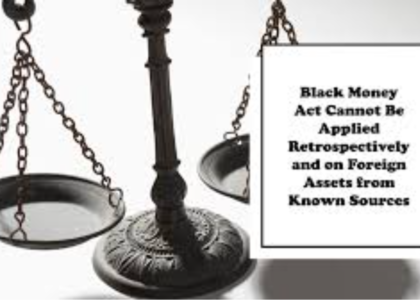Dear Readers,
I hope you are in good health and high spirits!
This article highlights the evolving authority of the Income Tax Department in accessing digital records during search operations. Under Section 132 of the Income Tax Act, 1961, and the proposed Section 247(1)(ii) of the Income Tax Bill, 2025, officials will have the power to retrieve tax-related information from electronic records when a taxpayer refuses to cooperate.
While this amendment aims to strengthen tax compliance and curb evasion, it also raises important concerns regarding data privacy and the extent of government oversight. With digital transactions becoming the norm, understanding these regulatory changes is crucial for taxpayers to protect their rights while ensuring compliance.
I encourage you to read the full article to gain deeper insights into these developments and their potential implications for individuals and businesses alike.
Best Regards,
Samir Mahajan
Income Tax Authorities Granted Enhanced Powers to Access Digital Assets of Non-Compliant Taxpayers Under IT Act & Proposed 2025 Bill, Aiming to Strengthen Compliance While Raising Data Privacy Concerns: MoS Finance
The Minister of State (MoS) for Finance, Shri Pankaj Chaudhary, recently addressed concerns in the Rajya Sabha regarding whether Income Tax (IT) officials would be allowed access to personal emails, social media, and bank accounts of all taxpayers. Responding to the query, the Minister provided crucial clarifications on the extent of IT officials’ powers during search and seizure operations.
Clarification on IT Department’s Powers
Shri Chaudhary categorically stated that IT officials do not have blanket access to the personal emails, social media accounts, or bank details of all taxpayers. However, he emphasized that during search and seizure proceedings, IT officials are empowered under Section 132 of the Income Tax Act, 1961, to inspect electronic records, including books of accounts and documents stored digitally.
He further highlighted that a similar provision has been introduced in the upcoming Income Tax Bill, 2025, under Section 247(1)(ii). This provision allows IT officers, in cases where the taxpayer is uncooperative and access credentials (such as passwords) are not provided, to override such access restrictions to retrieve relevant information from the taxpayer’s computer system.
Legal Basis for Accessing Digital Records
The legal foundation for accessing digital records is rooted in:
- Section 132 of the Income Tax Act, 1961 – Grants IT officials the authority to inspect and access electronic records relevant to tax investigations.
- Section 2(1)(t) of the Information Technology Act, 2000 – Defines electronic records, reinforcing the IT Department’s ability to inspect digital books of accounts.
- Section 247(1)(ii) of the Income Tax Bill, 2025 – Expands these powers, explicitly allowing access code overrides when necessary during search operations authorized by competent authorities.
Implications for Taxpayers
While this clarification ensures that law-abiding taxpayers need not worry about unwarranted intrusion into their digital lives, it also underscores the IT Department’s powers in cases where individuals attempt to evade investigations by withholding access to crucial documents.
The move aligns with the government’s broader efforts to curb tax evasion and strengthen financial transparency. However, it also raises concerns regarding digital privacy and potential misuse. Taxpayers should be aware of their rights and cooperate with authorities to avoid any legal complications.
Conclusion
The statement from the Ministry of Finance clarifies that IT officials will not have unrestricted access to personal emails, social media, or bank accounts. However, in cases of search and seizure where a taxpayer is non-cooperative, the IT Department may override access restrictions to retrieve necessary tax-related information. As the new Income Tax Bill, 2025, moves forward, stakeholders will closely monitor its impact on taxpayer privacy and compliance regulations.






very informative aspects